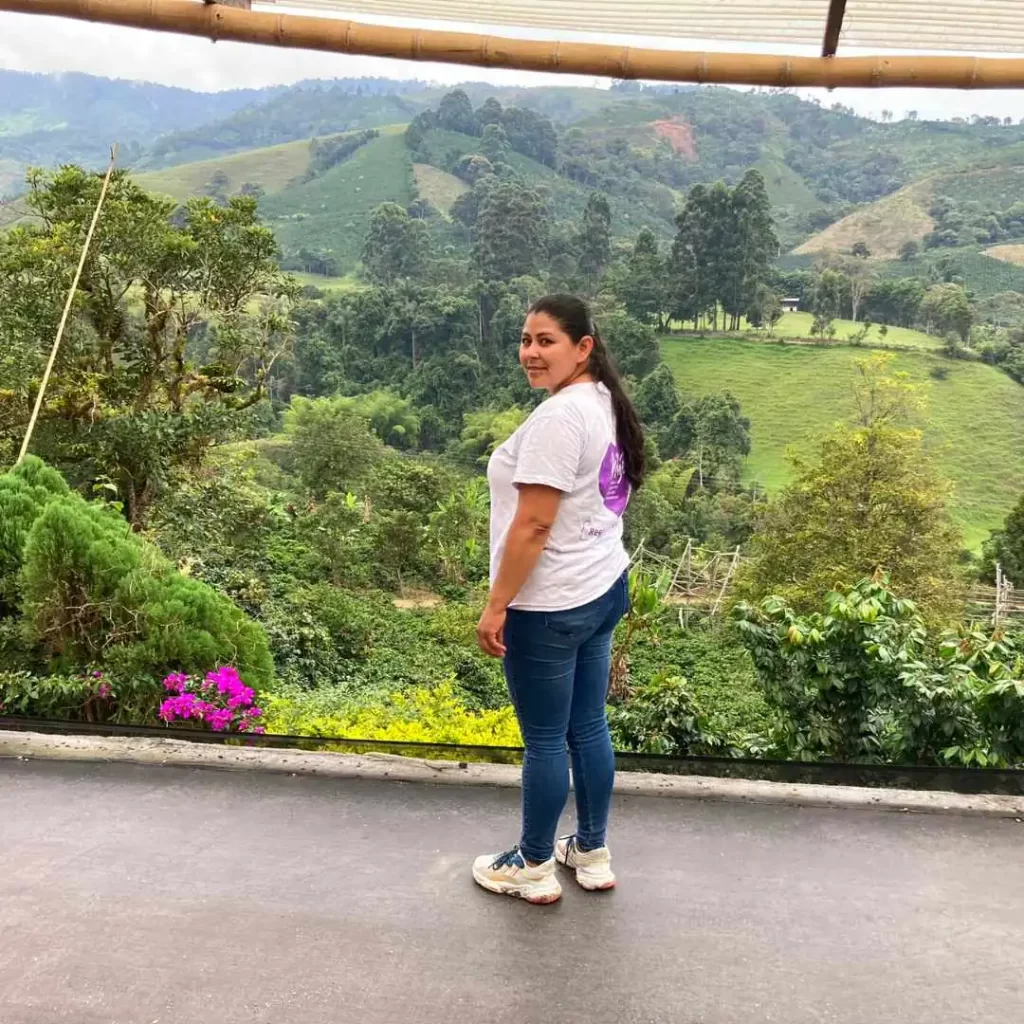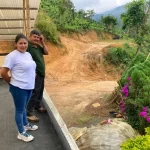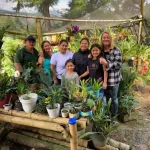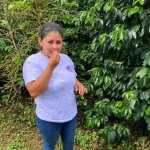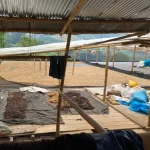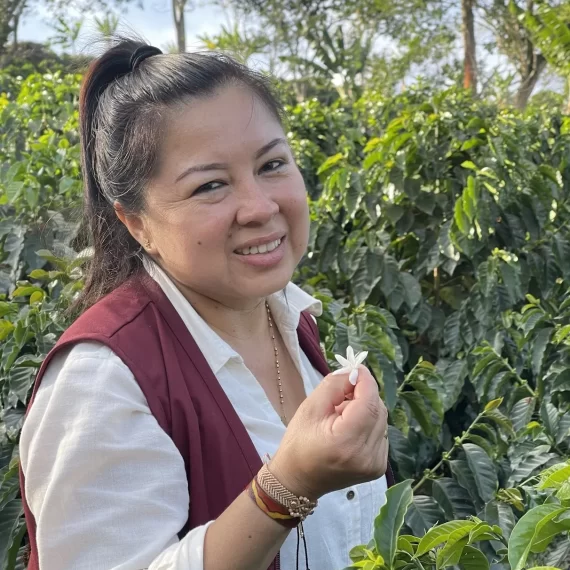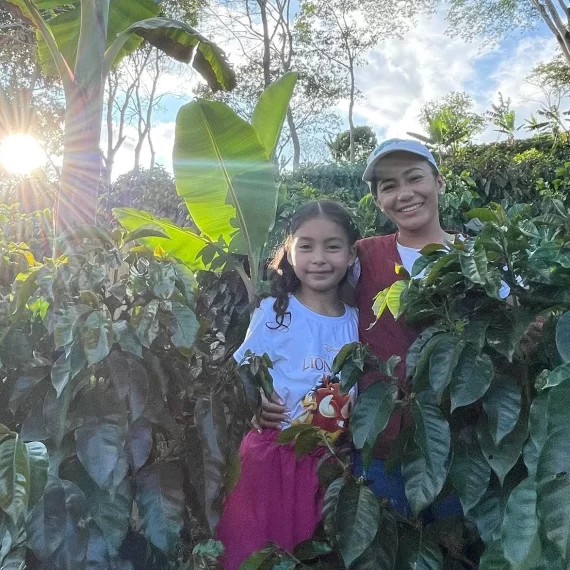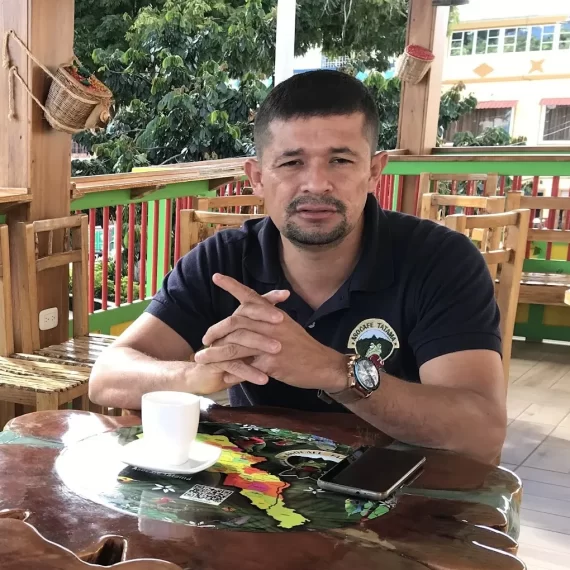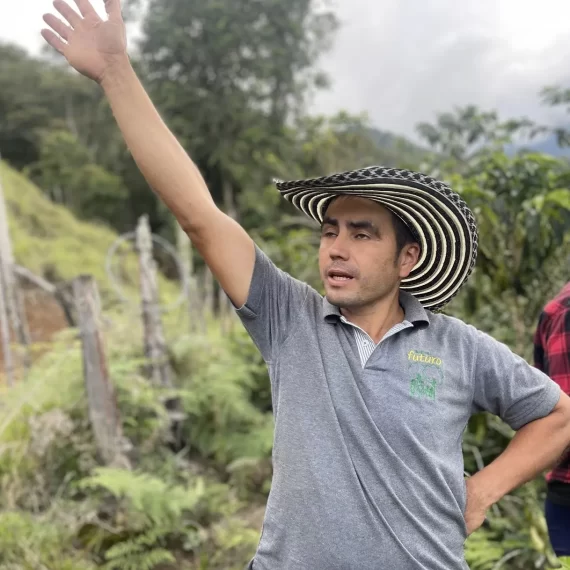
Marisol Ñañéz
Marisol was born into a family of farmers and, from an early age, helped with various coffee-related activities. At just ten years old, her father assigned her a small piece of land to encourage her deeper interest in coffee cultivation. This proved to be a pivotal moment – coffee became not only a livelihood for Marisol and her family but also a source of professional and personal growth.
In 2009, Marisol decided to expand her knowledge and completed a course in Bogotá focused on coffee quality and the physical and sensory analysis of coffee beans. A year later, she won a competition that earned her the prestigious Q grader certificate. Later, she supplemented her technical education in specialty coffee to apply all her acquired skills to the family farm. Despite her young age, she is an inspiration to many. In recent years, she has focused on developing the family’s roasted coffee brand, Maras Café. For five years, she also led a small women’s association that, among other things, produced its own coffee products. These experiences earned her recognition for her project management and marketing skills, even at the regional level.
The Story od Marisol
“Originally, my father lived with my mother at my grandmother’s house, his mother-in-law. To support the family, he traveled to the Putumayo department to work as a laborer, taking jobs related to coca cultivation. The work paid well, and after a few months, he asked my mother to join him with us – at the time, we were three siblings. Just eight days after my mother moved with us, the government began targeting people growing coca, and the area was bombed. My mother had to hide us from planes dropping bombs, and she quickly decided to return with us to Huila.
At that time, my father bought a quarter hectare of land from one of his brothers and started growing coffee. Step by step, he purchased small plots of land and eventually acquired about 9 hectares from five different owners, where we now grow coffee. In addition, we own 2 hectares of a nature reserve.”
About the coffee
“Since then, we’ve been working with specialty coffee and have built a good reputation through our results.” Coffee from Marisol’s farm has won several awards for its quality. Thanks to the natural conditions and nutrient-rich soil, the coffee is characterized by its smoothness and balance, with notes of citrus and flowers and medium acidity. Coffee allows the entire family to live peacefully. “We’re doing relatively well, although working on the farm is far from easy.”
In recent years, the family has ventured into growing exotic varieties such as Pink Bourbon, Bourbon Ají, and others. Marisol and her husband Dairo also introduced fermentation processes on the farm, which were later adopted by her father, Oliverio.
The process begins with the harvesting of only ripe coffee cherries. After harvesting, a floating process is carried out to remove some defective cherries. The sorted cherries are packed into GrainPro bags, where they are left for 72 hours. The cherries are then pulped and repacked into GrainPro bags for fermentation with mucilage, which lasts 50 hours. This is followed by a semi-washed process, where part of the mucilage is removed. Drying takes place in a polycarbonate dryer for 23 days. Finally, the dried beans are packed into bags for storage.
The process begins with the harvesting of only ripe coffee cherries. After harvesting, a floating process is carried out to remove some defective cherries. The sorted cherries are packed into GrainPro bags, where they are left for 72 hours. The cherries are then pulped and repacked into GrainPro bags for fermentation with mucilage, which lasts 50 hours. This is followed by a semi-washed process, where part of the mucilage is removed. Drying takes place in a polycarbonate dryer for 23 days. Finally, the dried beans are packed into bags for storage.


